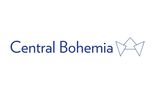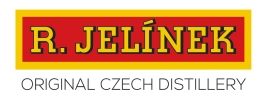Josef Jungmann
Written by Stella Plevova
Josef Jungmann was born on the 16th of July, 1773 in Hudlice. He was a Czech poet, linguist, and a significant figure of the Czech National Revival, a movement dedicated to reviving the Czech language. Along with Josef Dobrovsky, he is considered as one of the creators of the modern Czech language.
Youth and life in Litomerice
Jungmann was born as the sixth out of ten children. At the age of 11, he was studying at a high school in Beroun, which is located near Prague, where he moved afterward. During the years 1792 to 1795, he studied philosophy at Charles University. Later, he also studied law at the same university, but he did not complete these legal studies. He worked as a teacher for some time. In his late twenties, he moved to Litomerice where he taught at the local grammar school, for which he did not ask for a salary.
He is believed to be the first teacher of the Czech language in the Bohemian Kingdom. This school was named after Josef Jungmann, and it keeps this name to this day. In 1825, he moved back to Prague, where he became the headmaster of the Academic grammar school. Also, Jungmann taught the Czech language at the Faculty of Philosophy at Charles University, where he was appointed dean.
Family life
At the age of 27, he met Johanna Svetecka z Cernic, who became his wife in 1800. Together they had six children, four of them reached adulthood. Even though Johanna’ mother language was German she learned the Czech language and together with Jungmann agreed on raising their children in the Czech language. The oldest son Josef (1801-1833), used the patronym Josefovic to differ from his father, was his father’s co-worker and translator. In 1847 Josef
Jungmann died at the age of 74 and his grave can be found at the Cemetery of Olsany in Prague.
Work
Josef Jungmann established the first scientific magazine called Krok in 1821. Later, the group Jungmannova vedecka a basnicka skola consisting of several Czech revivalists was created. For instance, Frantisek Palacky, Jan Evangelista Purkyne and Ladislav Celakovsky were honorable members of this gathering. With the assistance of these people, Jungmann could create his first work, a five-piece vocabulary called Slownik cesko-nemecky Josefa Jungmann. 120, 000 words were included and gradually published during the years 1835-1839. Emperor Ferdinand I nominated Jungmann as a knight for creating a valuable piece of literature.
A significant part of Josef Jungmann’s work was translations that advanced the Czech language. His aim was not to create new words but to follow some rules set by Josef Dobrovsky. For example, he was finding relevant expressions in other Slavic languages, and then he created a similar Czech version. The goal was to maximize the accuracy of the translated word.
Most of his works are related to the Czech language, its history, or its evolution. This topic can be found in Slowesnost, aneb, Zbjrka prjkladu s krrtyym pogednanim o slohu k prospěchu wlastenecke mladeze od Josefa Jungmanna, and Historie literatury ceske aneb saustawny prehled spisu ceskych, s kratkou historii narodu, osviceni a jazyka.
Furthermore, Jungmann defended Rukopis Zelenohorsky and Rukopis Kralovedvorsky for their authenticity and this was controversial. In his time, both works were thought to be written during the 13th and 14th centuries and a masterpiece of the early period of Czech literature, but even then, their authenticity was in doubt. Today, the manuscripts are both considered fakes though a few still defend their authenticity as Jungmann did.



